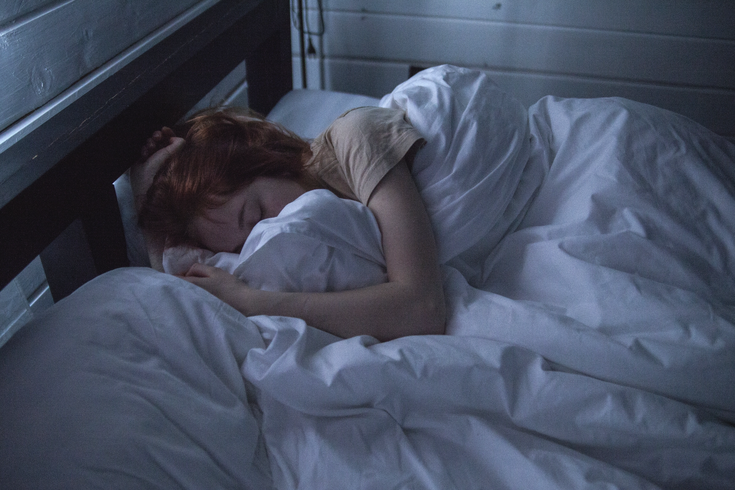
October 11, 2023
 Ivan Obolensky/Unsplash
Ivan Obolensky/Unsplash
Women who get less than 7-8 hours of sleep each night, or struggle to fall asleep, may be at increased risk for high blood pressure, a new study suggests.
Women who struggle to fall asleep at night might want to get their blood pressure checked.
A new study found that women with sleeping difficulties are at greater risk of developing hypertension, an often symptomless condition that can lead to heart attacks, strokes and other health issues.
Researchers at Brigham and Women's Hospital in Boston tracked the health data of 66,122 women, ages 25-42, from 2001 through 2017. None of them had high blood pressure at the start of the study.
Women who slept less than 7 to 8 hours each night were more likely to develop high blood pressure, as were women who struggled to fall – or stay – asleep. The risk of hypertension did not increase among women who slept more than eight hours each night. Waking up early, working night shifts or being naturally predisposed to staying up late did not affect hypertension risk.
"These findings suggest that individuals who struggle with symptoms of insomnia may be at risk of hypertension and could benefit from preemptive screening," said study author Shahab Haghayeagh, a research fellow at Brigham and Harvard Medical School. "Hypertension is associated with many other physical and mental health complications. The sooner we can identify individuals with high blood pressure and treat them for it, the better we can mitigate future health issues."
High blood pressure affects about 48% of adults in the United States and about one-third of adults globally, according to the World Health Organization. Nearly half of all adults with high blood pressure are women, and the risk of developing hypertension can increase with pregnancy, weight gain or age.
The U.S. Preventive Services Task Force recommends anyone age 18 and older be screened for high blood pressure. Yearly screenings are recommended beginning at age 40, and for people at high risk.
Though the study links insomnia symptoms to high blood pressure, the exact relationship between them remains unclear. Haghayeagh said sleep difficulties can lead to a chain of events that increase sodium retention, arterial stiffness and cardiac output, potentially leading to high blood pressure.
The study also found that women with sleeping difficulties were more likely to have a high body-mass-index, lower physical activity and poorer diets than those who did not report any sleep issues. They also were more likely to smoke, drink alcohol and have gone through menopause.
Doctors recommend that women suffering from insomnia symptoms seek medical advice about the reasons behind their sleep issues.
"It's a push for everybody to kind of advocate for themselves," Dr. Nicole Weinberg, a cardiologist at Providence Saint John's Health Center in Santa Monica, told Medical News Today. "If sleep is not as refreshing as expected or is restless, you actually may say, 'maybe I have a sleep disorder. Maybe I should be exploring that further,' and then your practitioner can take it from there."
Sleep deprivation also has a major impact on heart health, and catching up on sleep may not help, according to Penn State University scientists. Their research suggests developing poor sleep habits as a young adult may increase the risk of cardiovascular disease.
Women are advised to get 7 to 9 hours of sleep each night, but fewer than two-thirds of women actually get that much sleep, according to the U.S. Centers for Disease Control and Prevention. Just one poor night of sleep can lead to issues with memory, concentration and daytime sleepiness, but chronic sleep issues can increase the risk of injury, accidents, illness and death, according to the Sleep Foundation.